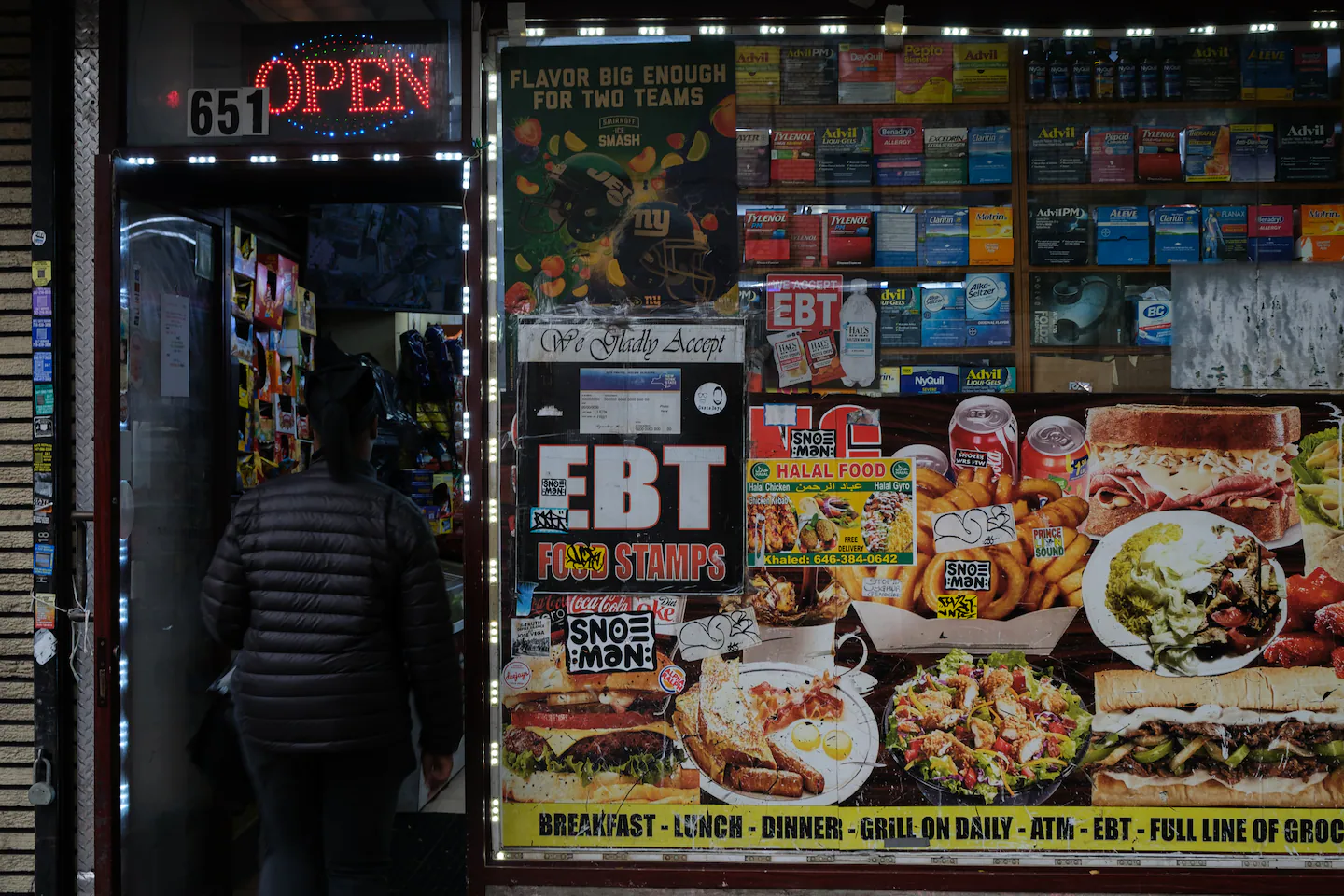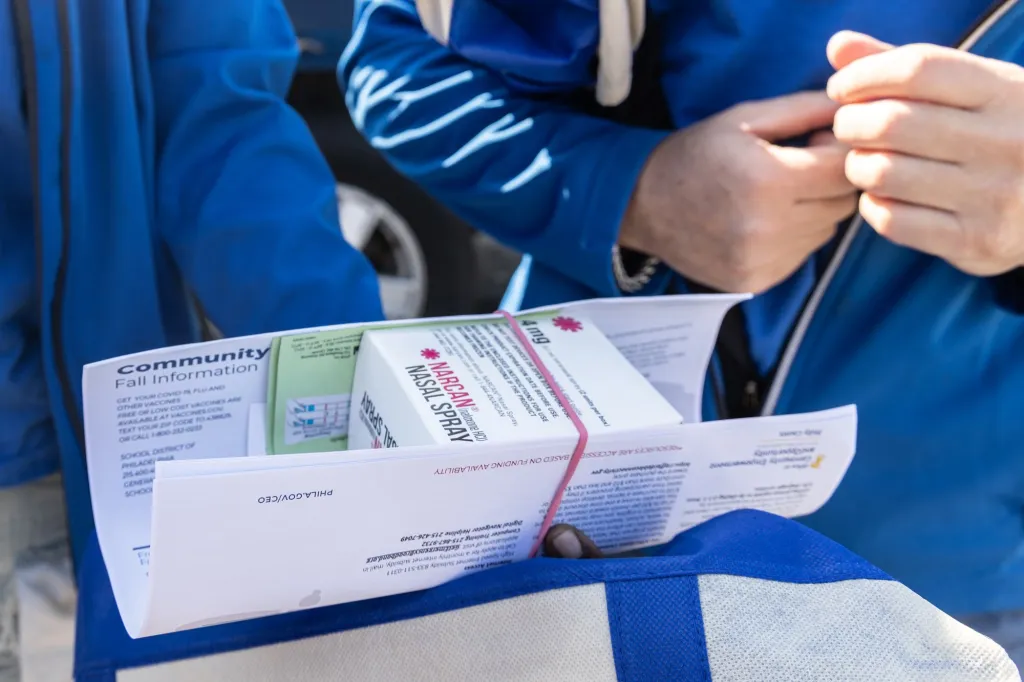Copyright The Boston Globe

That hardship may be an early sign of what’s to come, experts said, albeit on a smaller scale. Several changes to SNAP under President Trump’s signature tax and spending legislation are expected to make it more challenging for some Americans to get food assistance. One change, for example, requires most able-bodied adults to work at least 80 hours a month to receive benefits for longer than three months, while another change bans noncitizens from the benefits. The Congressional Budget Office, a nonpartisan federal agency that provides budgetary analysis of proposed legislation, estimates that SNAP’s new work requirements will reduce participation in the program by 2.4 million people during an average month. Advocates argue that work requirements are ineffective at increasing employment and only serve to push otherwise eligible people off benefits. “If, in fact, the reconciliation bill is implemented, it is going to increase hunger in the United States of America,” said US Representative Jim McGovern of Massachusetts, a Democrat who has dedicated much of his congressional career to fighting hunger. “We’re the richest country in the history of the world. ... I mean, how the hell is that acceptable? I’m ashamed that that’s the reality.” Another change will require states to take on more financial responsibility for SNAP. Starting in fiscal year 2027, state governments will be on the hook for 75 percent of the program’s administrative costs, up from 50 percent. And, for the first time, starting in fiscal year 2028, most states will be required to pay anywhere from 5 to 15 percent of program benefit costs, depending on how often they make SNAP payments in error. The CBO estimates that this shift will result in 300,000 people’s SNAP benefits being reduced or eliminated in an average month. “There are just really few states that have that kind of slack in their budget,” said Diane Whitmore Schanzenbach, a labor economist working in Georgetown University’s school of public policy. And, if some states choose to opt out of SNAP altogether as the CBO predicts, she said, “that’s going to leave a real gaping hole in the safety net.” Congressional Republicans, for their part, have argued that these new caveats are necessary both to help prune government spending — SNAP’s changes are projected to save $187 billion over the next decade — and to root out fraud within the program. Senator John Boozman, an Arkansas Republican who chairs the Agriculture Committee, dismissed the idea that shutdown-induced food insecurity is an early indicator of SNAP’s future. It’s like comparing “apples and oranges,” he said. “The law that came out of reconciliation is not going to have anything to do with people getting less [SNAP] benefits. What it is going to do is make it so that there’s not waste and fraud that’s going on in the sense of overpayments.” Republican Senator Jim Justice of West Virginia, a state where one in six people rely on SNAP, said the issue of people going hungry “can’t get any closer to my heart.” Even so, “there are some bad actors out there that are taking advantage [of SNAP] that we need to weed out,” he said. “I hope to goodness that what we’ll do is use the right sense ... eliminate the bad actors if we can, and then, for crying out loud, you know, let’s just support our folks that are having a tough time.” According to the Congressional Research Service, a nonpartisan governmental research institute, SNAP fraud is rare; payment errors are more common. Even before the November changes, many Americans were already fretting about their food security as the federal government shutdown extended week after week. Then, at the beginning of the month, food stamps were not administered for the first time in history. Stories of anxiety, hardship, and stress reverberated across the country as the Trump administration declined to use emergency Department of Agriculture funds to keep the federal government’s most prominent hunger prevention initiative, with 42 million recipients, afloat. Burke, as co-owner of JD’s Market, a small grocery store in Blackstone, put out a box of free food in her store so community members could take what they needed, no questions asked. “Seeing those people come in and [hearing] their stories just brings me back, and my heart goes out to them,” she said. Enhancing SNAP work requirements has long been a Republican policy goal fueled by Reagan-era fears that some poor Americans intentionally remain jobless to abuse government welfare programs. However, a majority of people who receive SNAP benefits are either children or elderly. Adults with disabilities also make up a significant portion of SNAP recipients. “That kind of tells you a little bit about who is low-income in this country,” said Schanzenbach of Georgetown University, “and it’s a lot of people who aren’t expected to work and are dependent.” Most recipients cannot pay for their monthly groceries with SNAP benefits alone, she said. The average SNAP benefit per person was $188.45 a month, according to the most recent federal data from May, the equivalent of $2 a meal. SNAP is “really the backbone of the social safety net,” Schanzenbach said. Adding these new restrictions will make the program less responsive during times of economic recession, such as during the COVID-19 pandemic, when SNAP spending rose sharply because of increased demand, she said. Not everyone agrees the changes to SNAP will result in significantly more hungry Americans. Craig Gundersen, an economist at Baylor University who has studied food insecurity for nearly three decades and a self-proclaimed “huge fan of SNAP,” doesn’t think the law is quite so dire for the program, even if he disagrees with the new work requirements. “The One Big Beautiful Bill Act, it’s not [making] transformational changes, just minor changes at the margins,” he said. “Mainly, they’re not cuts, they’re just reallocating where the funding is going to.” Other potential changes to SNAP should be getting more attention, he said, such as the push led by Health Secretary Robert F. Kennedy Jr. to ban sugary foods from SNAP, which Gundersen predicts would cause some to unenroll from the program. Kennedy argues the government shouldn’t subsidize unhealthy diets, while critics say such a ban unnecessarily restricts the freedom of SNAP recipients to make their own dietary choices. At least a dozen states have already moved to comply with Kennedy’s proposal. “There’s too many paternalistic things that we do to poor people in our country,” Gundersen said. “I just find it gravely insulting.”



